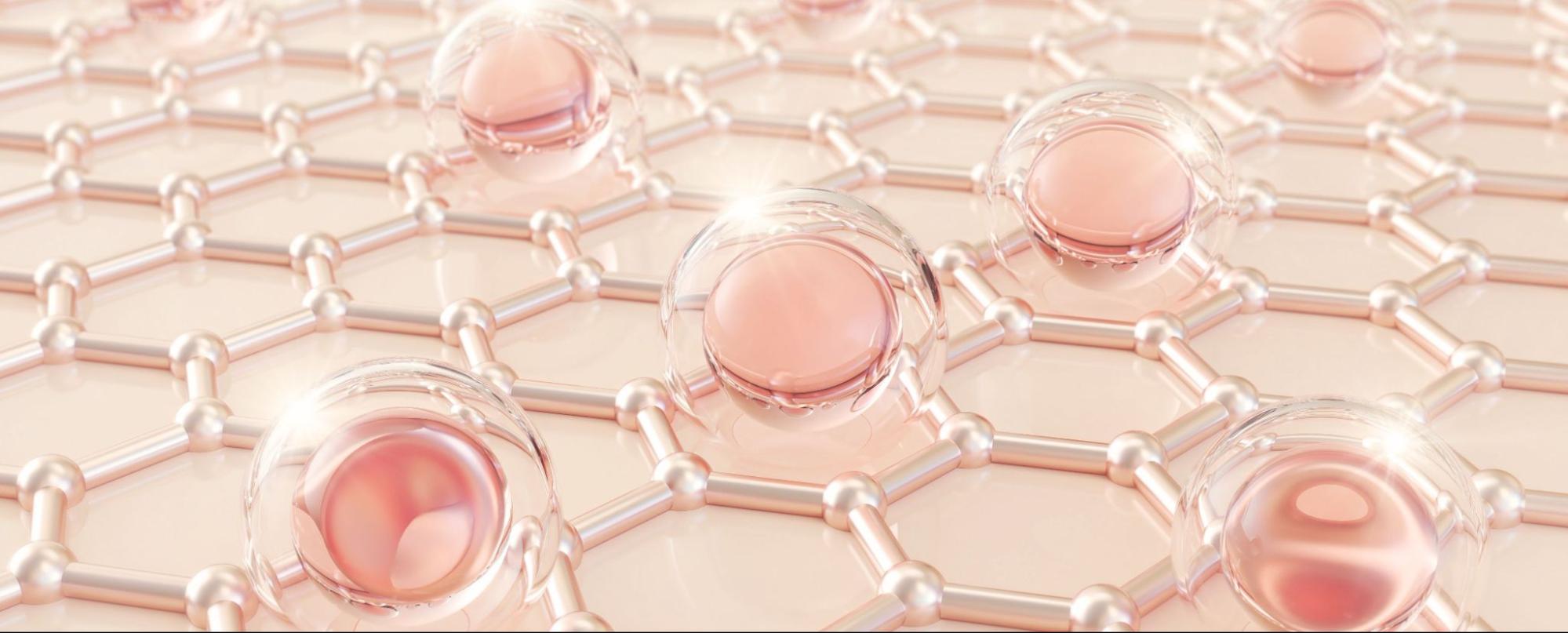TL;DR
Collagen is the skin's structural "scaffold," but production declines with age and UV/smoking-leading to lines, laxity, and dullness. You can rebuild visibly over time by signaling new collagen (retinol, vitamin C), maintaining hydration (multi-weight HA), sun protection, and adding non-fractional at-home lasers (e.g., NIRA) to stimulate fibroblasts in the dermis for firmer texture in ~10-12 weeks.
- Daily stack: SPF 30+, vitamin C (AM), retinol (PM), HA serum, protein- and C-rich diet; stay hydrated.
- Device boost: consistent NIRA use to trigger dermal collagen; expect gradual results, not overnight.
- Habits to ditch: excess sun, smoking, hot showers, harsh/stripping products.
Collagen is the unsung hero of youthful skin, providing the structure and elasticity that keeps our complexion looking firm and radiant. However, as we age, the natural production of this essential protein diminishes, leading to wrinkles and fine lines that many of us would rather avoid. The good news? Modern skincare methods offer promising ways to restore collagen levels, and many of these solutions can be explored right from the comfort of your home. In this guide, we’ll break down the science of collagen and highlight effective strategies to boost its presence in your skin.
Understanding Collagen

What is Collagen?
Collagen is the most abundant protein in our body, acting as the foundational structure or “building block” for our skin, hair, nails, and connective tissues. Derived from the Greek word “kólla,” meaning glue, collagen essentially acts as the adhesive that holds our body together. It forms a scaffold to provide strength and structure, ensuring our skin remains firm and taut.
What Does Collagen Do for the Skin?
Collagen plays a pivotal role in ensuring our skin's health and vitality. It provides the elasticity and resilience that keeps our skin looking plump, youthful, and radiant. This protein is responsible for warding off wrinkles and fine lines, giving the skin its smooth appearance. As we age, however, our natural collagen production decreases, leading to sagging skin and the appearance of wrinkles. This decline is a natural part of the aging process, but external factors like UV radiation and pollutants can further accelerate it.
Signs of Collagen Loss in the Face
he face, being the most exposed part of our body, often shows the first signs of collagen depletion. Common signs of skin aging such as fine lines, especially around the eyes, forehead, and mouth are indicators of declining collagen growth. Reduced skin elasticity can lead to a drooping appearance, especially around the jawline. Additionally, a decrease in collagen often results in a less radiant complexion, making the skin appear dull and lifeless. Over time, the skin's texture may also become rougher, and pores might appear more prominent.
Can You Rebuild Collagen in Your Face?
Yes, it is possible to rebuild collagen in the face—though it requires consistency and the right combination of treatments. While we can’t completely reverse natural aging, targeted strategies can stimulate the body’s own natural collagen production. Ingredients like retinol and vitamin C, along with collagen-rich foods, play a key role in this process. Additionally, at-home laser devices like NIRA are designed to penetrate the skin’s surface and activate fibroblast cells, which are responsible for collagen regeneration. With regular use, these approaches can visibly improve skin texture and firmness over time.
The Different Types of Collagen
Collagen, a vital protein in our body, comes in various forms, each serving its unique purpose. While there are numerous types of collagen identified, a few are particularly significant when it comes to skin health. Type I collagen is especially noteworthy. Predominantly found in our skin, tendons, and bones, this type of collagen provides the skin with its tensile strength and firmness. Its densely packed fibers contribute to the skin's elasticity and resilience, making it a crucial component in the fight against sagging and wrinkles. Beyond the skin, Type I collagen plays a vital role in maintaining the structural integrity of various tissues throughout the body.
Natural Decline and External Factors Affecting Collagen
Age is an undeniable factor in collagen reduction. As the years pass, our body’s ability to produce collagen slows down, leading to a thinner dermis and the appearance of those dreaded signs of aging. However, external elements play a significant role too. Prolonged sun exposure, for instance, can lead to UV damage, which breaks down collagen fibers and inhibits their natural production. Smoking restricts blood flow to the skin, depriving it of oxygen and essential nutrients, further accelerating collagen loss. An imbalanced diet or lacking essential vitamins and minerals can hinder the body’s ability to synthesize collagen effectively. It’s a combination of intrinsic aging and these external factors that contribute to the overall decline in our skin’s collagen levels.
5 Comprehensive Ways to Boost Collagen

Collagen Supplements
Derived from animal sources, these collagen supplements provide a direct intake of this essential protein. When choosing a supplement, opt for one with hydrolyzed collagen. This form has been broken down into smaller peptides, making it easier for the body to absorb and utilize. Regular intake can support skin health and potentially slow the natural decline of collagen in the skin.
Hyaluronic Acid
A powerhouse in the skincare world, hyaluronic acid can hold up to 1,000 times its weight in water. This naturally occurring substance in our skin aids in hydration, ensuring the skin remains plump and youthful. By maintaining skin moisture, hyaluronic acid indirectly supports collagen structure, ensuring it remains intact and functional.
Retinol
A popular ingredient in anti-aging skincare products, retinol is a derivative of Vitamin A. It works by accelerating skin cell turnover, promoting the growth of new skin cells while discarding old ones. This process encourages the skin to produce more collagen, leading to a firmer and more youthful complexion over time.
Antioxidants
Environmental stressors, like UV rays and pollution, introduce free radicals into the skin, which can break down collagen. Vitamins like C and E are potent antioxidants that neutralize these free radicals, protecting the skin and its collagen reserves. Incorporating skincare products rich in these vitamins can bolster the skin's defense against premature aging.
Facial Lasers
Harnessing the power of non-fractional laser technology, devices like the NIRA Pro Laser offer a revolutionary approach to skincare to help restore facial collagen. Formed in collaboration with dermatologists and designed by laser experts, NIRA provides a painless at-home solution that sends laser light into the dermis, triggering cells to rebuild natural collagen. Users can expect to see wrinkle reduction results as well as other improvements in the skin in 10-12 weeks, all without the need for in-office visits. It's a testament to how advanced technology can be seamlessly integrated into our daily skincare routines.
Tips for Maintaining Collagen Levels
A healthy diet, hydration, and sun protection are paramount in maintaining the skin’s collagen levels. Consuming foods rich in vitamin C, such as citrus fruits and leafy greens, along with protein sources like lean meats, bone broth, and legumes, supports collagen synthesis. Adequate water intake hydrates skin cells from within, while topical moisturizers lock in this moisture, ensuring a resilient skin barrier. Despite the benefits of sunlight, excessive sun exposure accelerates collagen loss. Using sunscreen consistently, even on overcast days, and donning protective clothing are essential steps to shield the skin and preserve its youthful appearance.
Embracing the Path to Radiant, Youthful Skin

Restoring collagen in the face is a holistic journey, combining dietary, lifestyle, and advanced skincare practices. With the advent of collagen-producing skincare technologies like NIRA Lasers, the path to youthful skin has never been more accessible. Embrace these methods, and let your skin reflect the vitality and radiance it truly deserves.





















